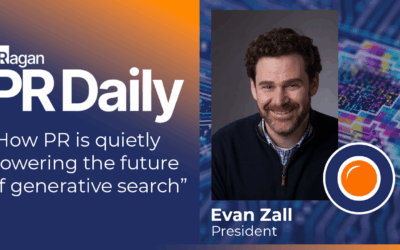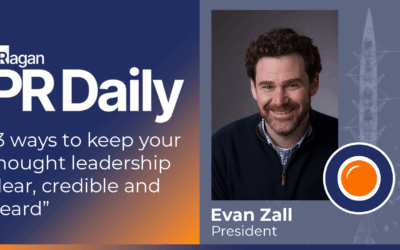As environmental, social, and governance (ESG) issues have grown in importance in the minds of stakeholders, corporations have taken notice. As a result, corporate social responsibility (CSR) continues to see increased prioritization in the business models of Fortune 500 companies across a vast spectrum of industries.
Aside from merely aligning a corporate’s direction with the wishes of its stakeholders, or preparing for impending regulatory compliance, adopters of CSR have seen the benefits of such campaigns in the form of business success.
Studies show that companies that prioritize CSR are more agile, efficient, and profitable. Greater still, excelling in each aspect of CSR offers unmatched risk awareness (and subsequent mitigation), to the companies that harness it. In truth, it pays to be in touch with your communities.
However, as recent headlines have blared in the wake of campaigns (and subsequent walk back) by Anheuser-Busch InBev (ABI), corporations on the CSR fence may feel deterred. While ABI may have a storied CSR past, it learned that missteps on this journey can cost them dearly.
Let’s explore how ABI’s handling of its CSR crisis can erode years of trust-building with key audiences. We’ll then contrast ABI’s failure with a standard bearer of CSR, Microsoft, and learn why it remains an ideal model for success.
Corporate CSR Case Study #1: AB InBev
ABI fell into hot water due to its campaign with a transgender influencer, Dylan Mulvaney. One of ABI’s flagship brands, Bud Light, created commemorative cans that featured Mulvaney’s image to celebrate her first year of womanhood.
On April 1st, Mulvaney proudly flaunted the celebratory cans on her social media accounts as part of the influencer partnership with Bud Light, in which fans could win $15,000 as part of a sweepstakes.
After the video was posted, a storm of backlash swirled on social media. Calls to boycott Bud Light due to the partnership with Mulvaney filled Twitter, with celebrities and politicians sounding off against the brand.
The waves of performative protests and boycotts from right-wing customers dinged Bud Light’s sales and prompted ABI to release a statement on April 14th to try and stamp out the controversy. The statement, which included the line “We never intended to be part of a discussion that divides people,” flew directly in the face of ABI’s stated DEI commitments.
Rather than standing by its message of inclusion, ABI’s labeling of a “discussion that divides people,” was nothing more than a concession to boycotters, and, perhaps worse, an alienation of its own LGBTQIA+ employees.
It also destroyed the foundation for the partnership, which sought to make inroads in the trans community. Now, the truth had been illuminated: ABI cloaked an insincere, profit-driving campaign in trans solidarity clothing.
How it All Could Have Been Avoided
ABI failed to remember a textbook business mantra: “know thy audience.” Its marketing department should have had guardrails in place to flag the Mulvaney partnership as potentially problematic from the brand’s perspective.
All told, it reveals ABI lacked both audience and social awareness. A precursory social listening exercise could have gauged Bud Light’s audiences’ sentiment regarding trans solidarity. These findings, paired with a hostile environment that has allowed bigotry to permeate and thrive in the mainstream, would have been illuminated as a business risk.
In recent months, much of the public discourse has centered on the trans community. Questions about gender-affirming care for minors, participation in sports, driver’s license gender rules, and more have been targeted by new legislation in several states. As a result, this fiery atmosphere has given pause to some companies’ CSR efforts as we enter Pride Month.
With this as the backdrop in many corners of the country, in addition to Bud Light’s audience psychographics and political demographics, red flags should have been raised before pursuing the Mulvaney partnership.
Despite Bud Light’s intention of a small-scale linkup, with only a handful of Mulvaney cans ever made and mass-production off the table, today’s hyper-sensitive environment puts even low-key partnerships under a magnifying glass.
Now, I wouldn’t argue against ABI pursuing future campaigns with the LGBTQIA+ community – far from it. Rather, ABI needs to make its next endeavor more intentional and rooted in the values central to its business.
For example, beginning by promoting how ABI works to make queer employees feel welcomed at work could lay the groundwork for future campaigns. This will contribute to a point down the road where ABI and its brands can reach LGBTQIA+ members from a point of authenticity.
Corporate CSR Case Study #2: Microsoft
Microsoft’s CSR story stands out as an ideal blueprint for other brands to follow. Central to this fact is that CSR has consistently been part of its core business for decades, which should prove to hesitant corporates that such a marriage does not have to come at the cost of profits.
The Seattle-based tech giant proudly touts its relationship with CSR at all stages of its value chain, ensuring that it upholds a responsible relationship with the myriad communities it interacts with.
For example, the environment has long been a community that Microsoft has focused on. Microsoft has sought to reduce its contribution to climate change with bold carbon negative goals that meld well with its calls for governments “to adopt firm carbon and electricity policies.”
Its ability to loudly advocate for a green energy transition has been earned by its authentic relationship with sustainable business. Transparent reporting via its annual environmental sustainability report and dedicated websites communicates to stakeholders that Microsoft is willing to hold itself accountable.
Microsoft puts immense effort into its social performance, as well, as it consistently ranks among the top 15% in key DEI metrics. Microsoft prides itself on employing a diverse workforce and has the infrastructure in place to support it. One survey found that 92% of Microsoft’s diverse employees believe that their employer is supportive of their LGBTQIA+ colleagues.
Authentic Advocacy
Microsoft recently made waves when its Chief Sustainability Officer, Melanie Nakagawa, released a no-holds-barred call to climate action for governments and corporates in May. As the Supreme Court continues to defang the Federal government’s ability to combat climate change, the onus is placed on corporations to step up. Microsoft wants the world to know that it’s answering this call.
The statement, which coincided with its annual sustainability report, harnessed Microsoft’s status as a corporate sustainability thought leader to fuel its calls for business and government leaders to pursue clean energy initiatives.
With a storied CSR alignment in tow, Microsoft is able to advocate for relevant issues from a point of authority. This is bolstered by the fact that Nakagawa’s statement holds Microsoft itself accountable when it cited its progress toward carbon-negative status by 2030 as needing improvement.
Microsoft’s work here checks all the boxes on CSR campaigns. Because CSR tenants are so ingrained in Microsoft’s business model, its statement feels (and is) truthful. Microsoft took solace in its data, which said audiences wouldn’t view its messaging as performative.
In Summary
CSR has long provided companies with a pathway to identify their risk exposure to critical business factors. A polarized political spectrum should put companies on high alert in ensuring their future statements are unimpeachable.
ABI’s bout with its Bud Light boycott revealed basal flaws in its CSR strategy, both in its pursuit and response. It has sent shockwaves throughout corporate America and should lead to more intentional, authentic campaigns.
Microsoft has cultivated a near-bulletproof CSR identity for close to half a century. Its story should serve as a beacon for other companies, for considering the communities along your value chain can bring performance and a platform to advocate for your principles.
At Longview Strategies, we know the recipe for building a CSR messaging campaign grounded in a company’s mission. We know the stakes involved and are ready to get to work.
If your company needs assistance in aligning its CSR identity with its messaging, let’s start a conversation today.




